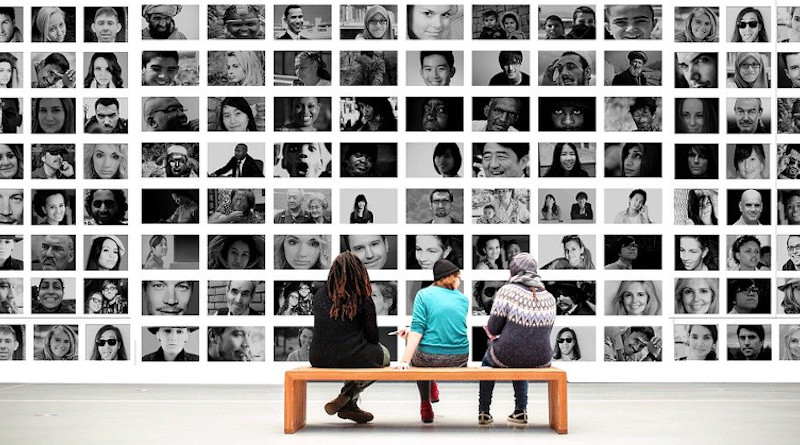Pandemic, De-Globalization, And Clash Of Civilizations – OpEd
The current pandemic has been the harbinger of significant changes in global affairs. On the one hand, it has spurred a new awareness of global need to tackle the health problem wreaking havoc around the world, requiring a common global effort to address it, in part through such world organizations as the WHO and the UN.
Theoretically speaking, Covid-19 has underscored the ‘global common’ and the importance of connecting any national strategy to a broader international strategy in today’s highly interconnected world. But, on the other hand, the exact opposite momentum against globalization and internationalism has been set into motion by a global pandemic that is primarily, and often exclusively, tackled at the national level, exposing the deep flaws and shortcomings of various manifestations of globalization such as regionalism, e.g., in Europe.
On balance, however, it is fair to conclude, albeit a tentative one given the uncertainties surrounding this pandemic and its future course, that the upper hand in this contradictory milieu belongs rather solidly to the anti-globalization tendency that has acquired various nomenclature such as “virus nationalism.”
As a result, we can predict with a high degree of certainty that parallel to the growth of (xenophobic) nationalism east and west there will be an upswing in de-globalization, as ties of (complex) interdependence weaken, national borders go up higher, and there will be a corresponding emphasis on “self-sufficiency” and “self-reliance” in sharp contrast to the unilinear pattern of the past several decades.
There are, of course, certain limits to de-globalization set by the contemporary finance capitalism and a capitalist world economy that has been expanding for the past five centuries or even longer, depending on which theory one relies on.
The late Immaneul Wallerstein, with whom this author collaborated at a research center at Binghamton University once, would no doubt dismiss the idea of de-globalization as a misleading façade that contradicts the so many irrefutable evidence of a capitalist world system today, with its own complex layers of uneven development, stratification, and extent of capital accumulation.
But, perhaps Wallerstein’s theory is too abstract and does not sufficiently account for periodic regressions and occasional de-globalization, as a temporary hiatus, which is exactly where we are headed now.
A big question is if the new de-globalization phenomenon translate into a greater global anarchy and even chaos? Those who assume a direct connection between the two may miss the relative autonomy of the political from the economy, just as some have overlooked the relative autonomy of finance capital from the rest of the economy. But it is also simplistic to ignore the potential harvest of the new dawn of nationalisms sweeping across the great oceans, setting the stage for greater international tensions in the proximate future, as great powers such as China and US seemingly enter a brand new era of unambiguous mutual hostility, in light of the pandemic-induced accusations and counter-accusations — that increasingly have a civilizational tone, recalling the insights of Samuel Huntington in his landmark work on “clash of civilizations.”
Now, as a former UN consultant on the “Dialogue among civilizations,” a lofty project initiated by the late Kofi Annan after Iran’s president’s unveiling the idea at the General Assembly, it is difficult for this author to find any redeeming value in Huntington’s thesis, except that unfortunately instead of dialogue we are headed for clash of civilizations. If the pandemic has been a ‘game-changer’ at all on a planetary scale, it may well be its triggering the demonic forces of clashing civilizations, seeing how xenophobic nationalisms in the east and the west are nurtured by a health crisis that is sowing a great deal more divisions than unity.
As a result, those who continue to profess loyalty to the lofty objectives of dialogue among civilizations, such as diversity, respect for the other, tolerance, and reciprocity, need to double their efforts to counter the tsunami of de-globalization and its cultural and ideological side-effects we may encapsulate in the term ‘clash of civilizations’, i.e., a hermeneutic of suspicion and exclusion.
This is, indeed, a supremely difficult task since, in US in particular, the Trump ‘counter-revolution’ has set the clock back on internationalism and given the Western superpower a fundamentally reactionary character, notwithstanding Trump’s syndrome of ‘withdrawal’ resulting in US’ exit from so many important international agreements.
One can only hope that the coming presidential elections will put a stop to this unhealthy syndrome, but then again Trump’s re-election bid is somewhat helped by the current de-globalization milieu caused by Covid-19, increasing his chances despite the dismal health crisis-management.
If so, then the dark feathers of clashing civilizations will become even more pronounced under a second Trump administration. In turn, the global community ought to resist the temptations of clashing civilizations by focusing on the common ills of humanity today that are in dire need of greater, and not lesser, international cooperation.

